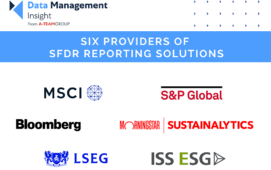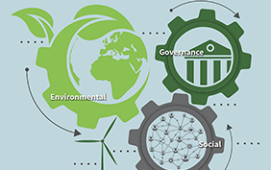
Business IT giant Tata Consultancy Service (TCS) is using digital technologies to assess corporates’ supply-chain sustainability performance. The service is designed to help financial institutions and organisations manage their ESG portfolios, calculate climate and social risks, and meet regulatory obligations.
While the initiative is still at the early stages of development, TCS Sustainability Director for Europe Eugenio Longo says he is confident digital technologies will be better at establishing an accurate picture of supply chain ESG performance than other systems built on aggregated data and proxies.
“We believe that’s going to be the approach that’s going to give us the best results,” Longo tells ESG Insight.
Calculating supply chain sustainability performance is the latest frontier in ESG, as regulators and investors demand information on so-called scope three emissions – those produced by an investee company’s up- and down-stream service providers. The process is particularly difficult because of data availability and in many cases the small size of businesses among which ESG disclosure processes are less developed.As a result, startups and established data and tech companies are clamouring to build products and offer scores that estimate real-world performance. Among the best known are EcoVadis, a SaaS-based company that offers assessment scores on more than 95,000 companies. Sustainalytics recently launched its Corporate Supply Chain ESG Solutions, and AI platform o9 is among a number of firms that have created software to track and measure companies’ impacts.
Probabilistic Assumptions
Capturing supply chain data can only be done through technology, says Longo, because the resources needed to gather it from companies through direct engagement would be prohibitive. “For the time being, it’s going to be a probabilistic analysis because if you go beyond IT, that means physical audits and it means understanding who are the exact stakeholders, and that becomes an impossible exercise,” he comments.
TCS uses technology, including AI, and data gathered via the Internet of Things in its under-development algorithm, which is being built on a set of probabilistic assumptions about the behaviour of companies and the suppliers they use. Using sector-specific knowledge and data, it will work out where a company is likely to source energy and other inputs based on factors such as distance, transport networks and proximity of suppliers. When ESG expectations are applied, an estimate of the sustainability of all the nodes within a supply chain can be constructed.
The approach could be applied to any company and supply chain with tweaks made to account for different factor weightings within each industry. If the model progresses beyond proof of concept, Longo says it is likely that other third-party assessment tools would be integrated at client request.
Any service that emerges from the under-construction model will be useful for TCS’ corporate clients, who are under increasing pressure to disclose their ESG performance to regulators, and also to financial institutions, who can include the intelligence in their own portfolio and risk assessment models.
“Data and IT will close the gap between the banking sector that wants to grow its ESG in portfolios and clients that want to address Sustainability Development Goals and sustainable finance,” says Longo.
ESG Newcomer
TCS, which manages the data and IT architectures of companies including SunLife and EDF Energy, is relatively new to the ESG space, but Longo says sustainability data management is an organic extension of the services it offers.
The company recently unveiled its ESG Integration Solution to enable asset managers and owners to assess their portfolios’ ESG performance. Hosted on the Amazon Web Service (AWS) cloud, the product features a proprietary ESG data ingestion platform and analytics suite that will assign sustainability scores to companies and assets.
Data will be sourced via the AWS Data Exchange, which will also give clients the opportunity to measure the performance of their portfolios against sustainability benchmarks. Data will be analysed to provide insights at the corporate, sectoral and regional levels.
The product, which is being offered as a microservice, has also been tooled to enable financial institutions to prepare regulatory disclosures.
Subscribe to our newsletter




